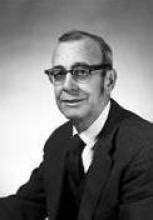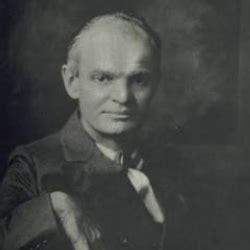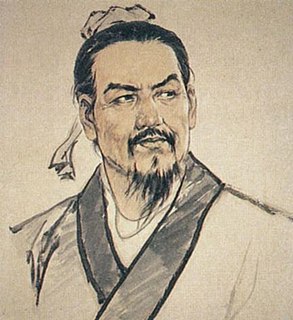A Quote by Ralph Barton Perry
This insistence on "having his say upon the universe" is the profoundest motive of William James thinking as well as of his filial gratitude.
Related Quotes
Henry James once defined life as that predicament which precedes death, and certainly nobody owes you a debt of honor or gratitude for getting him into that predicament. But a child does owe his father a debt, if Dad, having gotten him into this peck of trouble, takes off his coat and buckles down to the job of showing his son how best to crash through it.
Cough clenched, and vomited something chunky into the grass. Terrific. The big dog sat on his haunches and looked at William with a perplexed expression on his face. "Well, eat it back up," William hissed. "Don't waste it." Cough gave a tiny whine. "I'm not eating your puke." Cough panted at him. "No.
Blessed is the servant who loves his brother as much when he is sick and useless as when he is well and an be of service to him. And blessed is he who loves his brother as well when he is afar off as when he is by his side, and who would say nothing behind his back he might not, in love, say before his face.
I think with great affection and deep gratitude of my venerable predecessor, Benedict XVI, who during these years of his pontificate has enriched and strengthened the Church with his teaching, his goodness, his guidance, his faith, his humility, and his gentleness, which will remain a spiritual heritage for all.
Observe your cat. It is difficult to surprise him. Why? Naturally his superior hearing is part of the answer, but not all of it. He moves well, using his senses fully. He is not preoccupied with irrelevancies. He's not thinking about his job or his image or his income tax. He is putting first things first, principally his physical security. Do likewise.
The result of observing only the universe is anxiety. Only observing the Observer of the universe will put a stop to a man's worrying and fussing and scheming. When his interest is diverted inwards he naturally relaxes his hold - his stranglehold - on the outer world. Having withdrawn his capital and paid it into his own Central Bank (where it appreciates to infinity), he has nothing to lose out there and no reason for interfering. He knows how to let things be and work out in their own time. He's in no hurry. Knowing the Self, he can hardly fail to trust its products.
Each individual composes the music of his own life. If he injures another, he brings disharmony. When his sphere is disturbed, he is disturbed himself, and there is a discord in the melody of his life. If he can quicken the feeling of another to joy or to gratitude, by that much he adds to his own life; he becomes himself by that much more alive. Whether conscious of it or not, his thought is affected for the better by the joy or gratitude of another, and his power and vitality increase thereby, and the music of his life grows more in harmony.








































